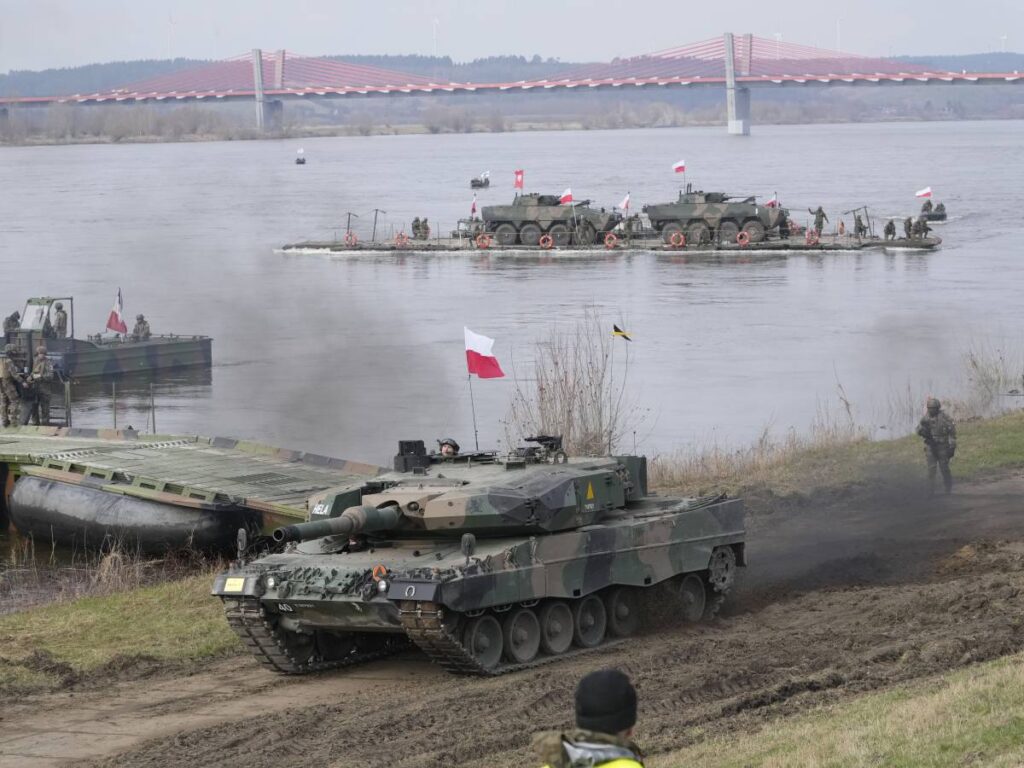
A mini-operation of Sicilian Vespers in Polish sauce has just started in Poland, announced on November 19 by Deputy Prime Minister Władysław Marcin Kosiniak-Kamysz. However, the aim of the extraordinary deployment of troops on the streets of Poland was not a war against organized crime: it was a war against a network of Kremlin spies and saboteurs who committed arson, destroyed factories and derailed trains across the country.
Tusk’s plan
Polish Prime Minister Donald Tusk had a clear idea of how to deal with the security emergency sparked by the massive sabotage campaign launched by Russia after its invasion of Ukraine: deploy the army to guard critical national infrastructure indefinitely. Specifically, according to what was communicated on social media by the number two in Tusk’s government, Warsaw plans to deploy ten thousand regular soldiers and an unspecified number of members of the Territorial Defense Force – a kind of National Guard.
The operation was called “Horizon” and aimed to reduce the amount of sabotage against Poland’s critical infrastructure, which was most affected on the European front in the Russo-Ukrainian war. The operation was created to defend sensitive places visible to the naked eye, such as railways, hospitals, power plants, and will make extensive use of artificial intelligence-based applications to predict and calculate the risk of attack, infrastructure by infrastructure.
Legitimate fear
Public opinion welcomed the announcement of the upcoming deployment of soldiers and volunteers. Moreover, not only is Russia viewed and historically viewed as an implacable and inextinguishable enemy in the region, but the last three years have been extremely difficult for Poland.
The number of shadow wars between Russia and Poland is beyond doubt. Since February 24, 2022 until today, Polish authorities have arrested more than fifty people from various countries for acts of sabotage and espionage crimes committed by Russia, half of whom have been tried and sentenced, and have counted 25-40 attacks on infrastructure that may or have been proven to have Russian origins, although there are more than 100 cases still open.
There was no mention of minor sabotage or limited action. Moscow’s agents of chaos hit large cities, such as Warsaw, Gdańsk, and Wrocław, as well as small-medium cities, such as Siemianowice Śląskie and Minsk Mazowiecki. The list of attacks includes highly varied episodes, from the destruction of the Marywilska 44 shopping center in May 2024 to a fire on the Warsaw metro line in 2025.
The dual aims of this destabilization campaign carried out by Moscow are hidden but understandable: to pressure Warsaw to reduce its military exposure to Kiev, which has been one of their main supporters since before 2/24, and perhaps to sow fear in public opinion, in the hope of reducing public support for the current government and its foreign policy.
Recent developments show that the dual objectives have not yet been achieved: Poland is preparing to become the NATO member with the highest share of GDP invested in defense – a target of 5% –, arms deliveries to Ukraine continue and Operation Horizon has just begun.




